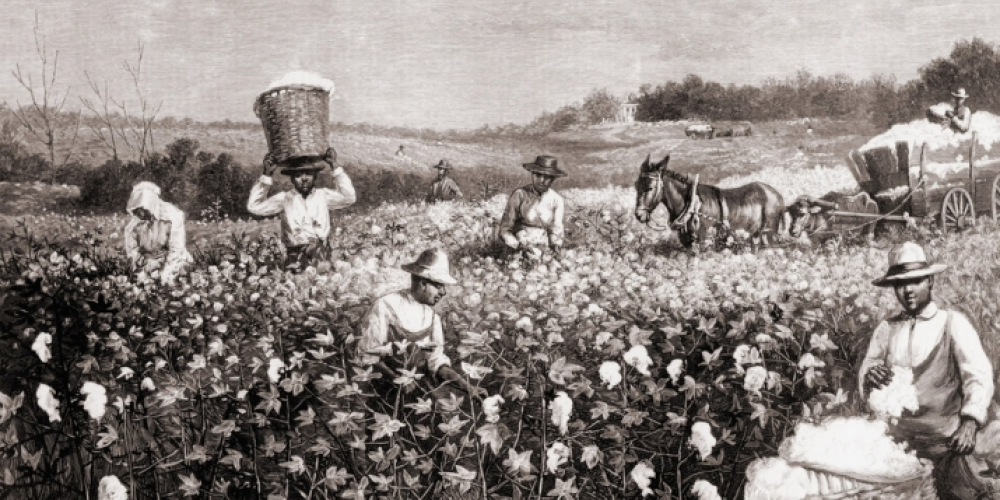
Failure or not, it characterised Brown: he was convinced that slavery could not be abolished just by talking about it. Together with his militia he would kill numerous adversaries, but his ultimate goal - abolishment - he would never attain. Nevertheless he would remain a hero for a significant part of his supporters. To others he was a terrorist, the very first in the United States. Be that as it may: less than two years after his sentencing, the American Civil War erupted. Soldiers of the northern Union would often sing the song written in honour of John Brown. The song that would end up across the ocean, somewhere around Brussels, a century later.
I believe students chose the song very deliberately.
Were VUB students aware that history? Or was it mostly due to the fact that is was a religious and Catholic song that they were able to dowse in such a humanistic and anti-religious coating? According to VUB archivist Frank Scheelings it is clear that the fight against slavery had something to do with it. “I cannot imagine that young intellectuals in the day would not be aware of the background of that song. I believe they chose it very deliberately. They identified with the minority in the song. It was similar to the situation they found themselves in in the fifties, when the Brussels’ student organisation - that already had a song - chose to create their own version of the song. There had been for the longest time already been a Flemish student group at ULB.
Flemish spearhead in Brussels
The song, that first popped up in the fifties, can be considered the spark of the flame that would eventually lead to the foundation of the Vrije Universiteit Brussel in 1969. In its early days, the university was often considered as a Flemish spearhead in Brussels. That idea is now long gone, but was very prominent back then. Flemish students wanted to revolt.” There had always been a Flemish emancipation movement at the Brussels’ university. After 1935 a Flemish student organisation was founded that called itself Geen Taal, Geen Vrijheid (No Language, No Freedom), after there had been another group with the same name earlier. Their message was clear: those who cannot speak their language freely, can never truly be free. The political translation of that message: Dutch would have to be the only language in Flanders. They would strive for Dutch taught courses at the Université Libre de Bruxelles. Something they would have to wait for a long time.
The ‘geus’ in the lyrics refers to the uprising against Spanish oppression in the sixteenth century.
The rebellious nature of the Flemish students in Brussels still resounds clearly in the lyrics. With the opening line reading: “Brusselse studenten van de ‘Klauwaert ende Geus’ strijden wij voor vrijheid steeds getrouw aan onze leus. Roemruchte rolders blijven wij tot in de dood, de schrik van de kaloot.”
The ‘klauwaert’ is a reference to the clawing Flemish lion, the symbol of the Flemish earldom in the Middle Ages, and a sobriquet of those involved in the Flemish emancipation movement. The ‘geus’ in the lyrics refers to the Flemish and Dutch uprising against Spanish oppression in the sixteenth century, often led by impoverished noblemen, with little to lose. As with klauwaerts they were a minority that successfully managed to oust their oppressors. Heroes, so too for the Flemish students in Brussels. It wasn’t for nothing that Dutch speaking students at the Brussels university named their magazine De Geus. Numerous songs can be attributed to the geuzen: the most famous of which is the Wilhelmus, the current national anthem of the Netherlands.
Unity
Today the referral to regionalism and oppression seem a bit odd. Outdated even, in the contemporary time frame. A sentiment made all the more clearer by the student organisations themselves in rallying behind the unitary notion of our country. And still students keep singing the song unabated, historic and flemish connotation and all. Although it has to be noted that for most the ideas behind the song are of less importance. Drinking and singing the song loudly; for many it doesn’t get any better. After all, isn’t the essence of a student’s life found in studying and having fun at the same time?
 Frank Scheelings: "Students identified themselves with the minority in the song."
Frank Scheelings: "Students identified themselves with the minority in the song."